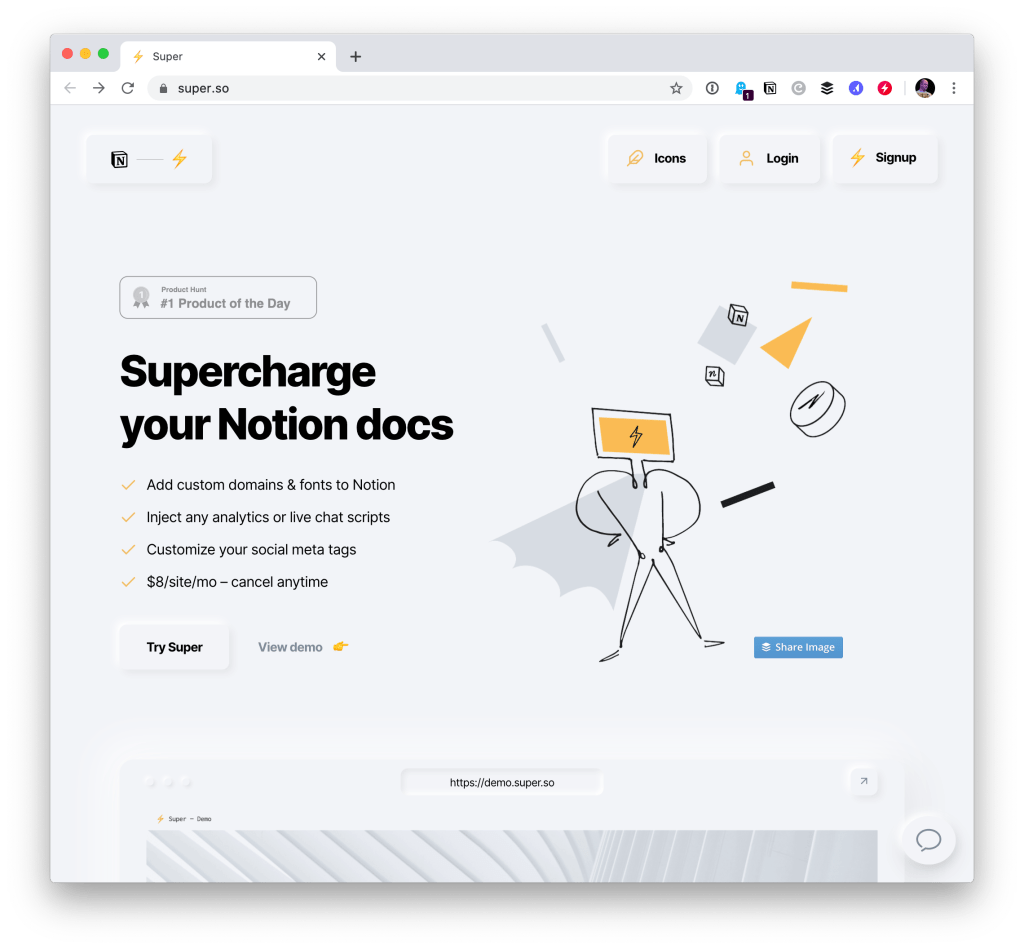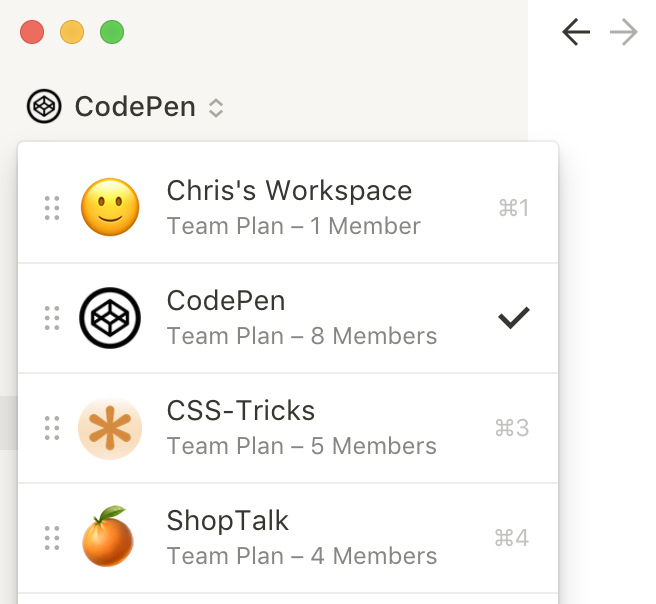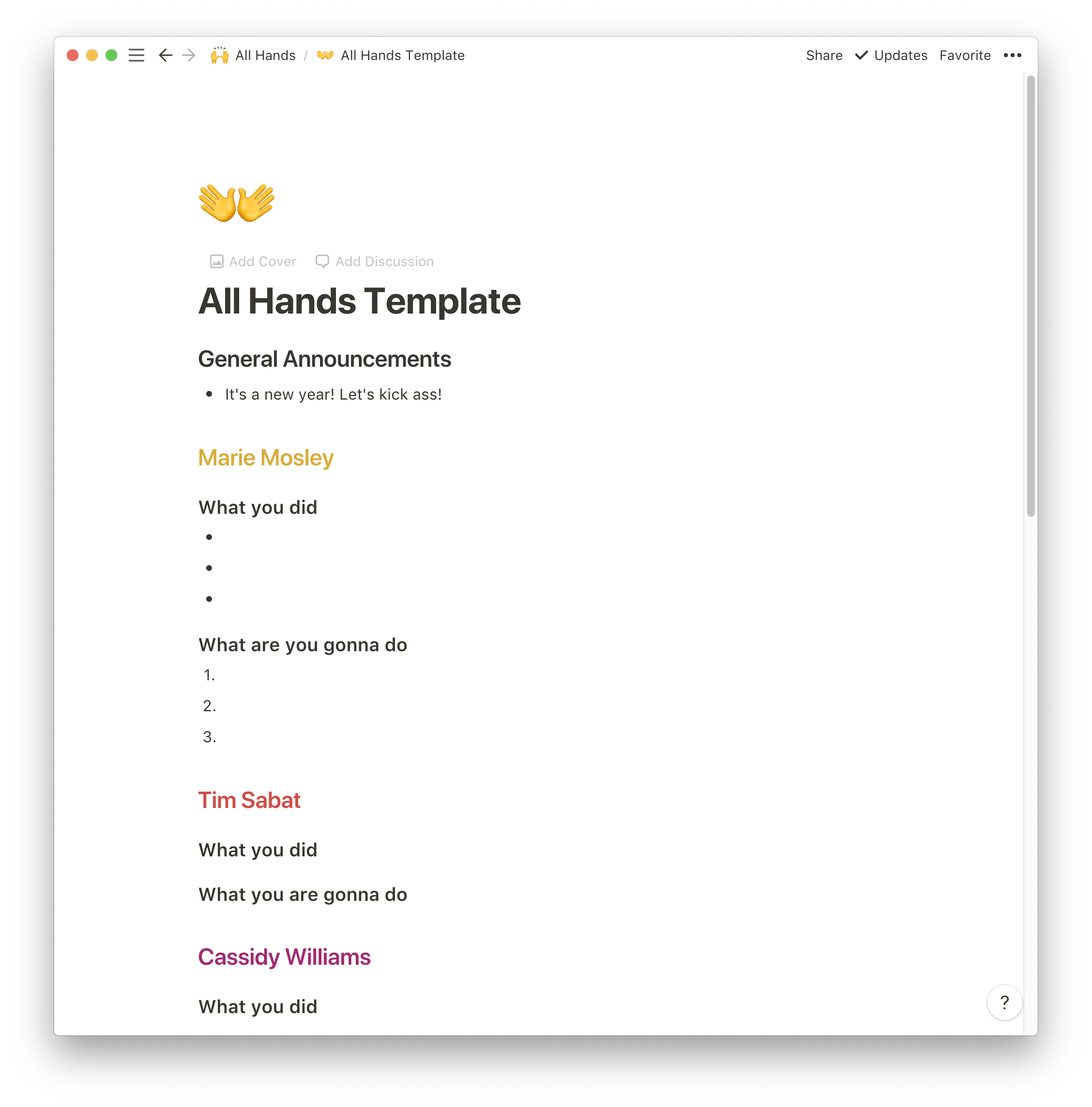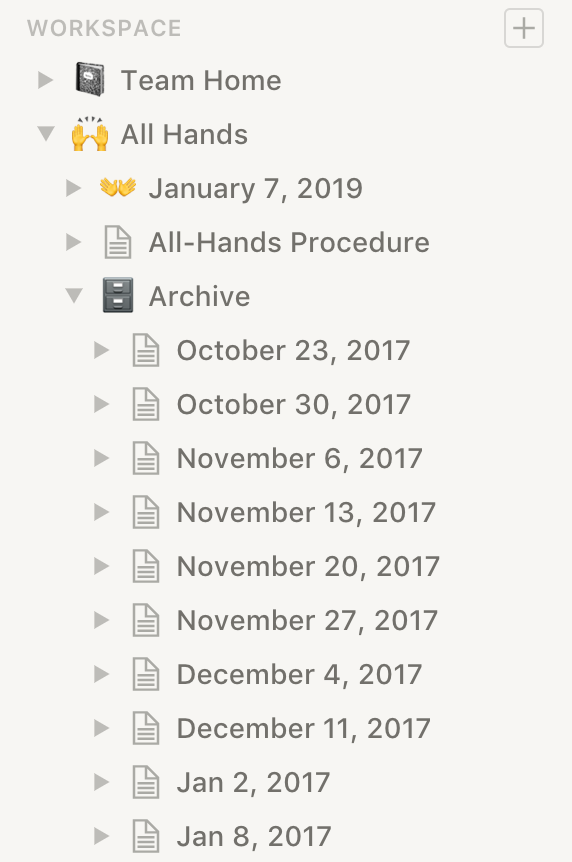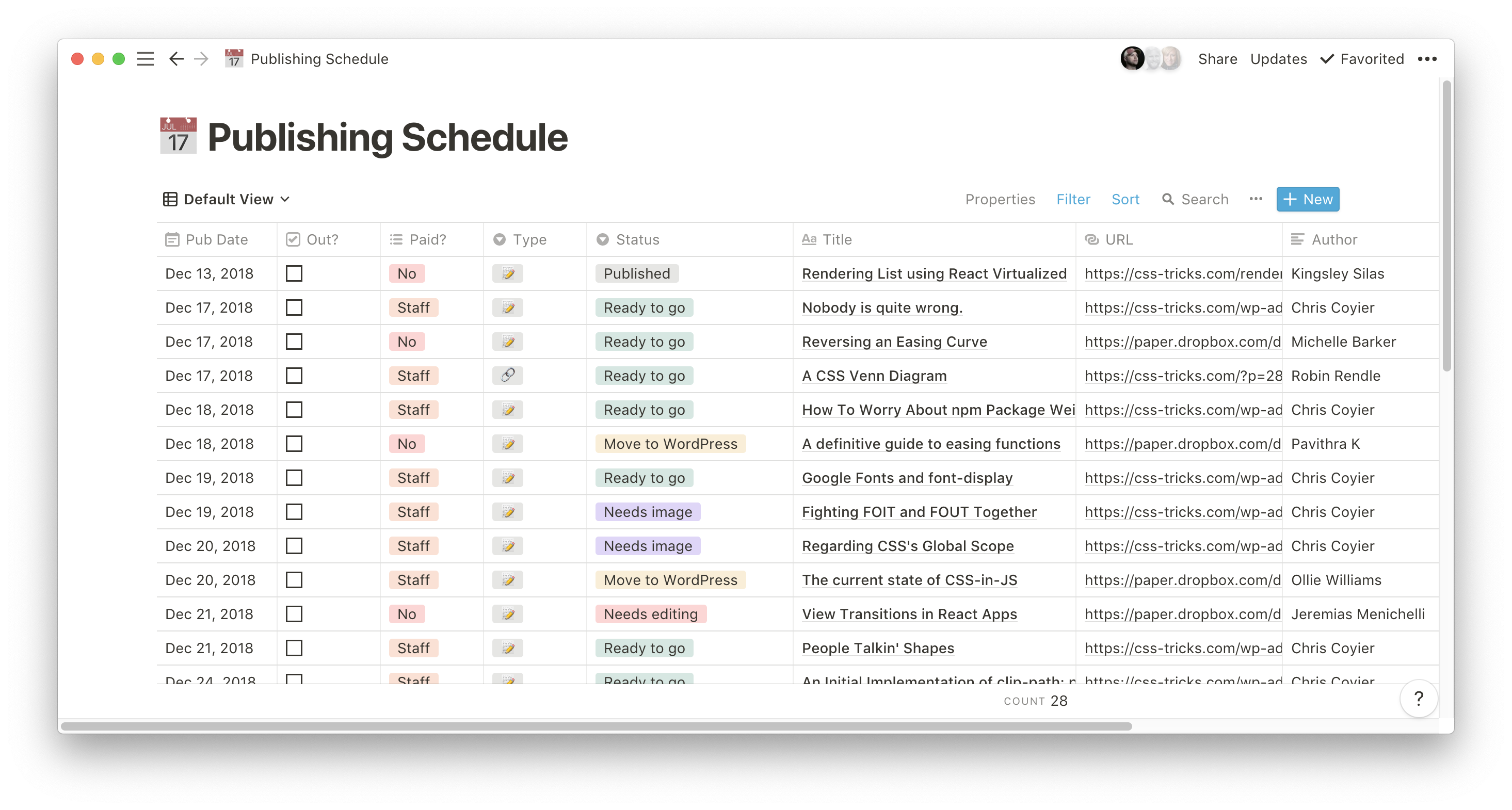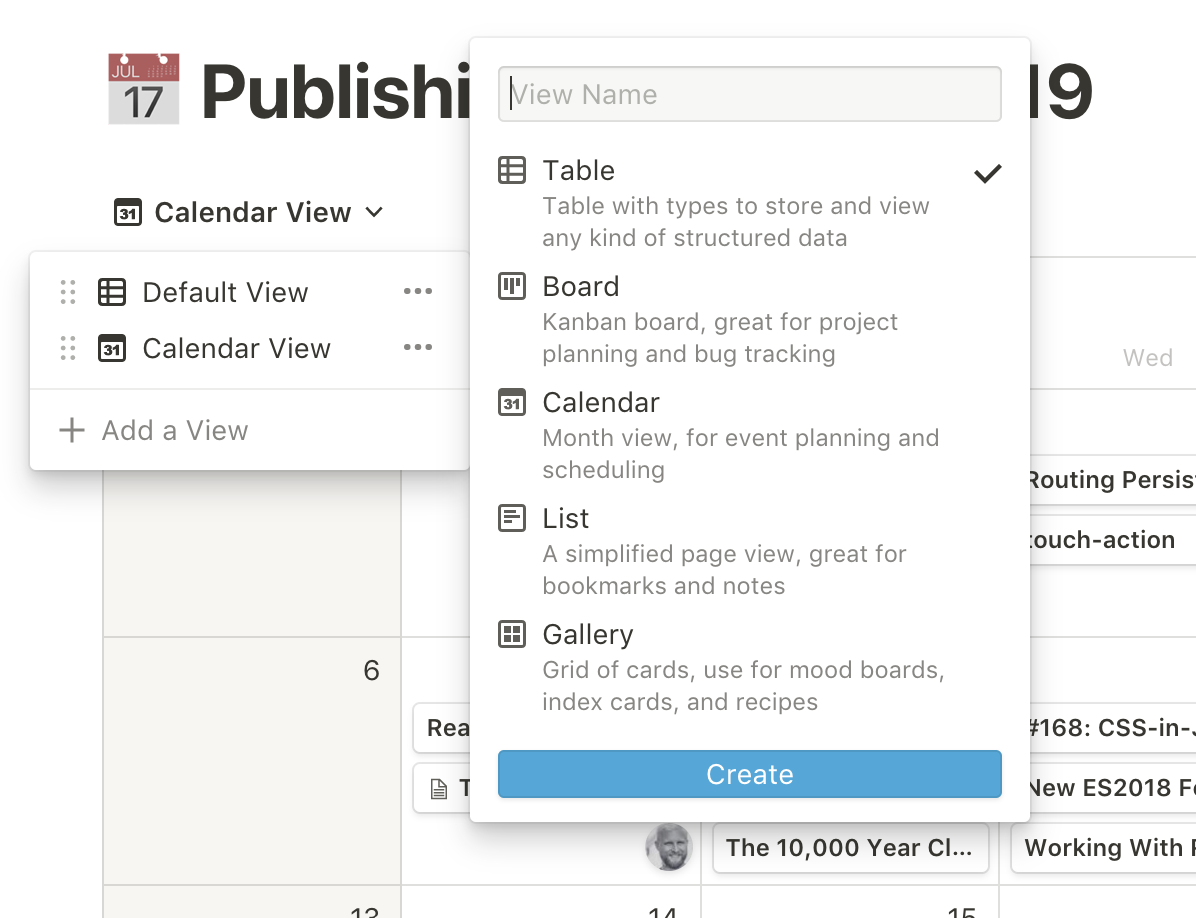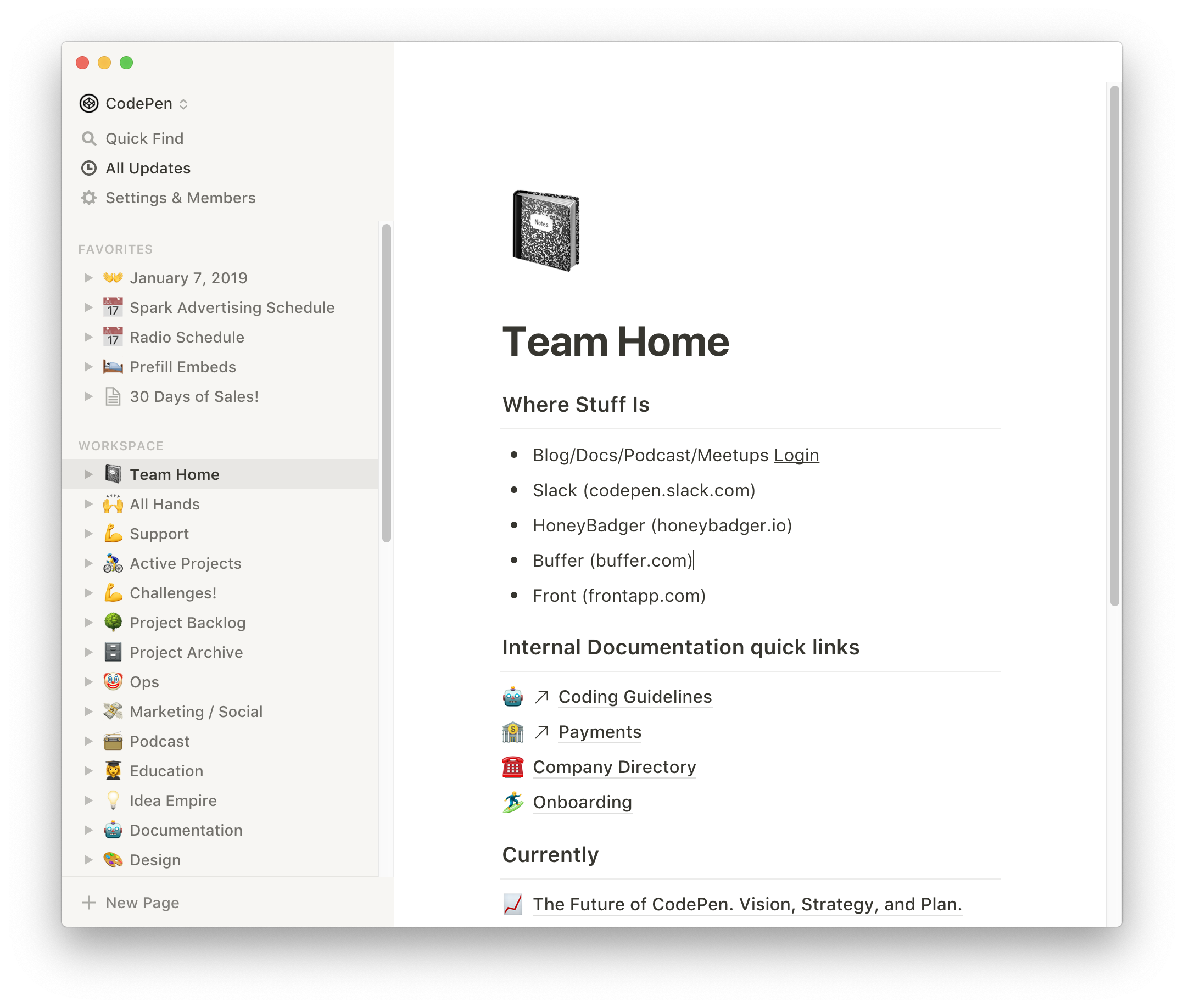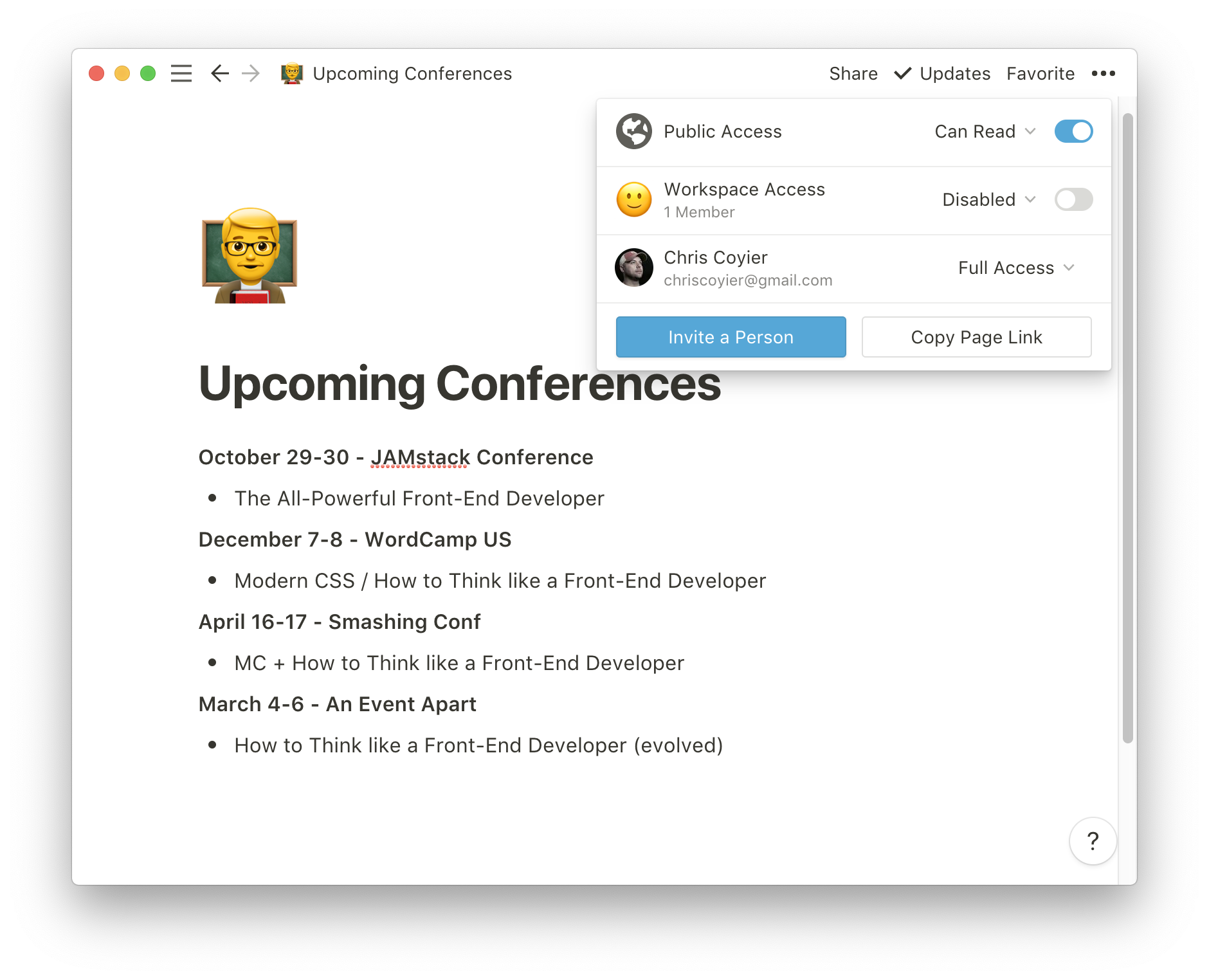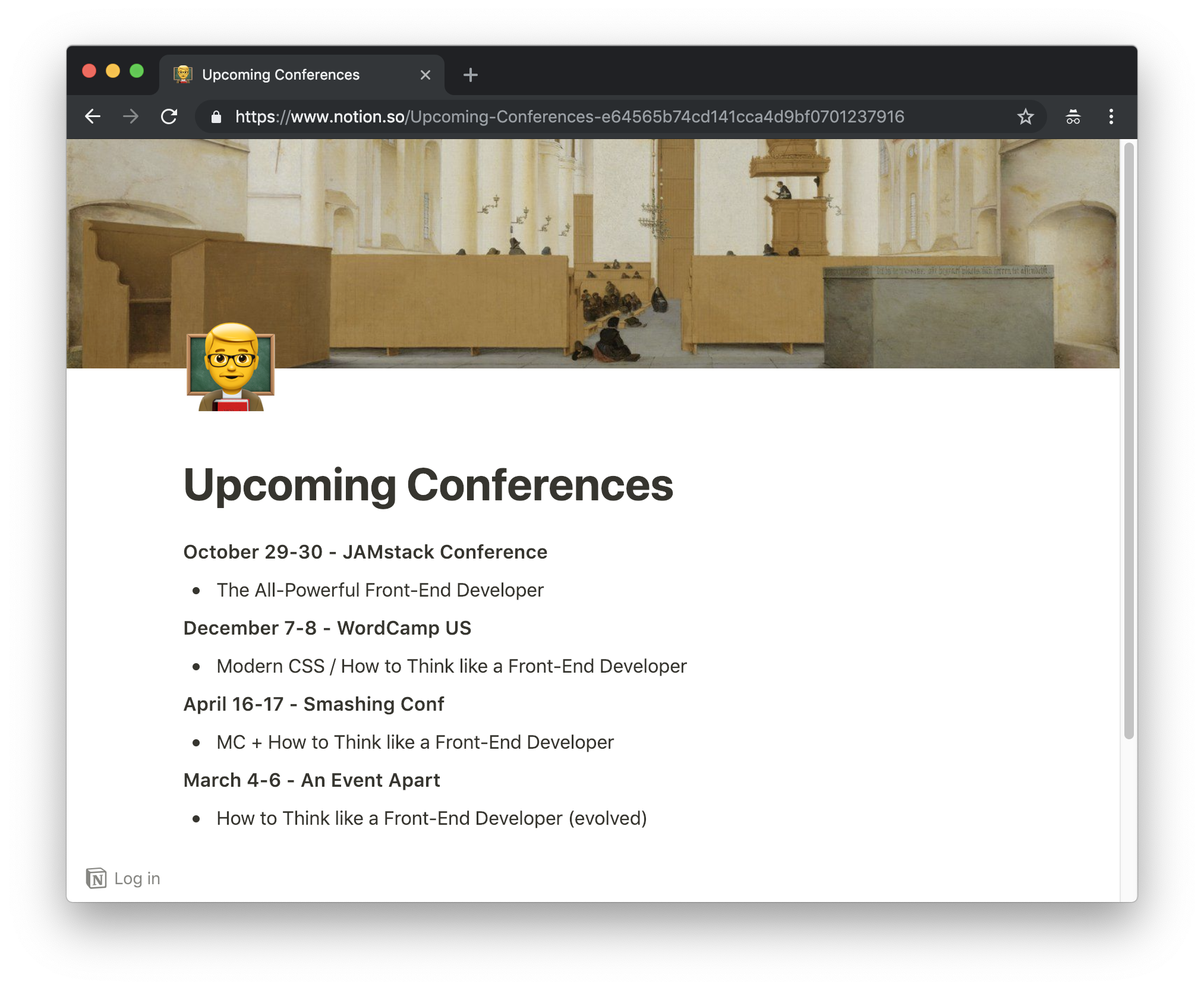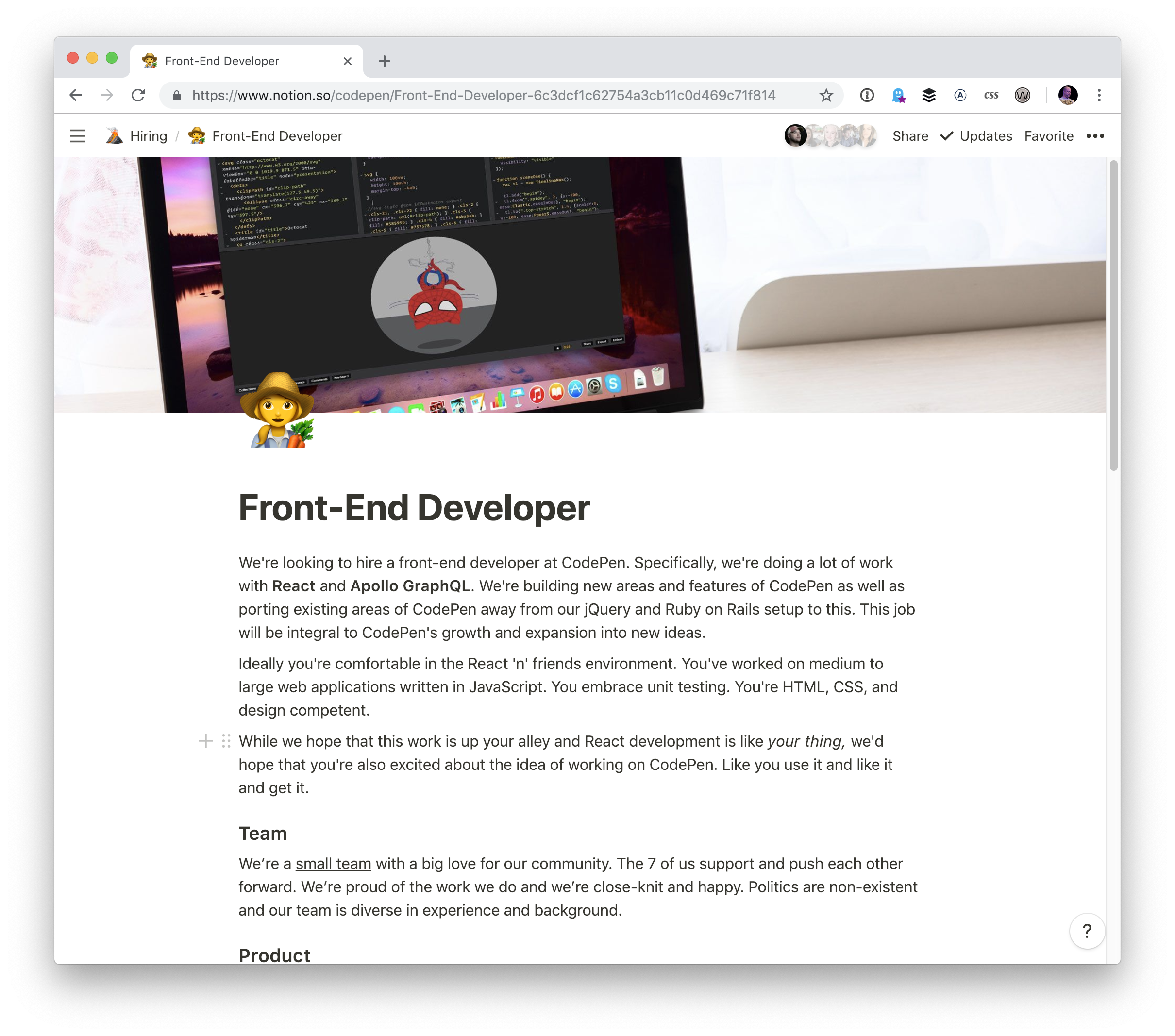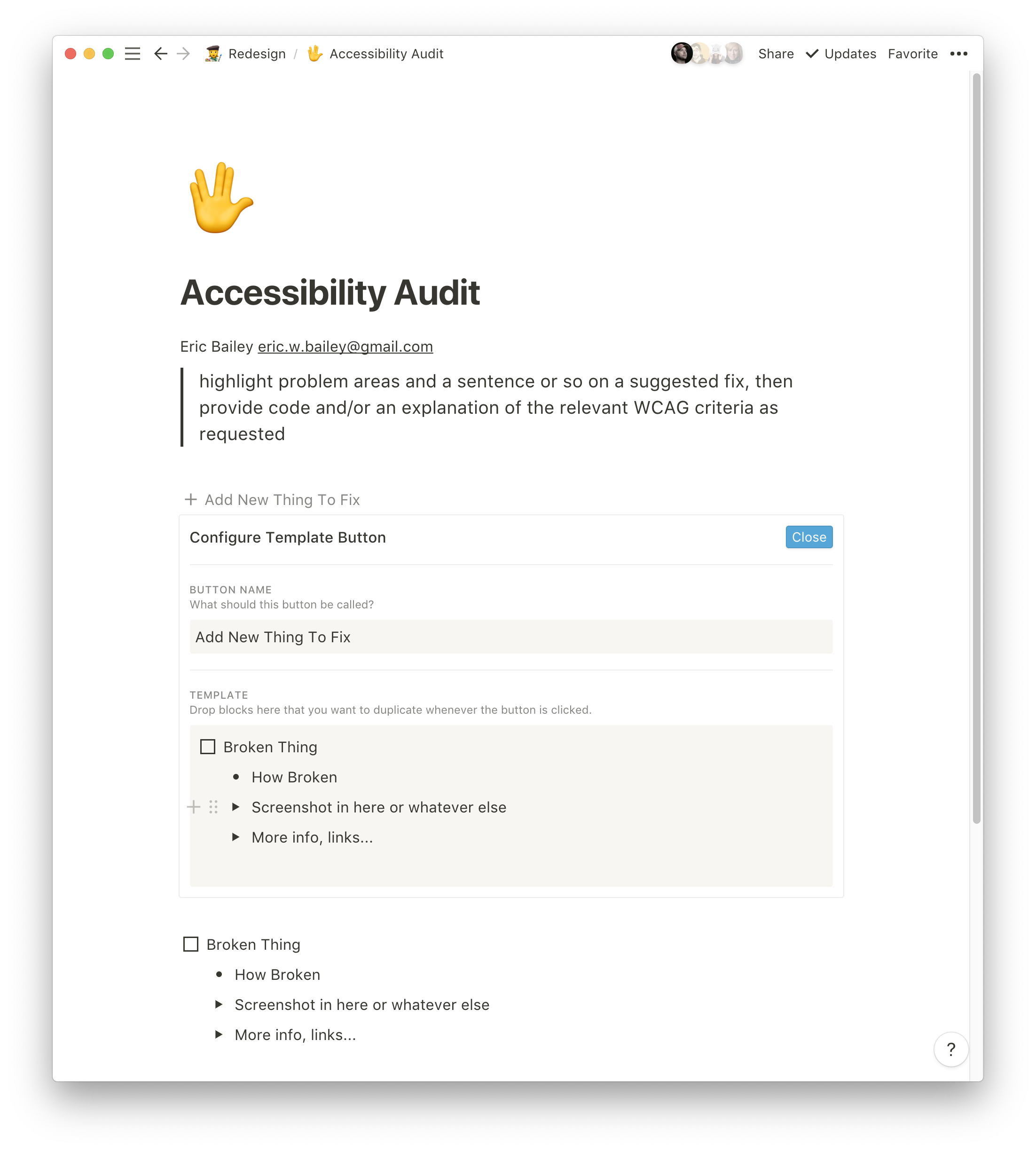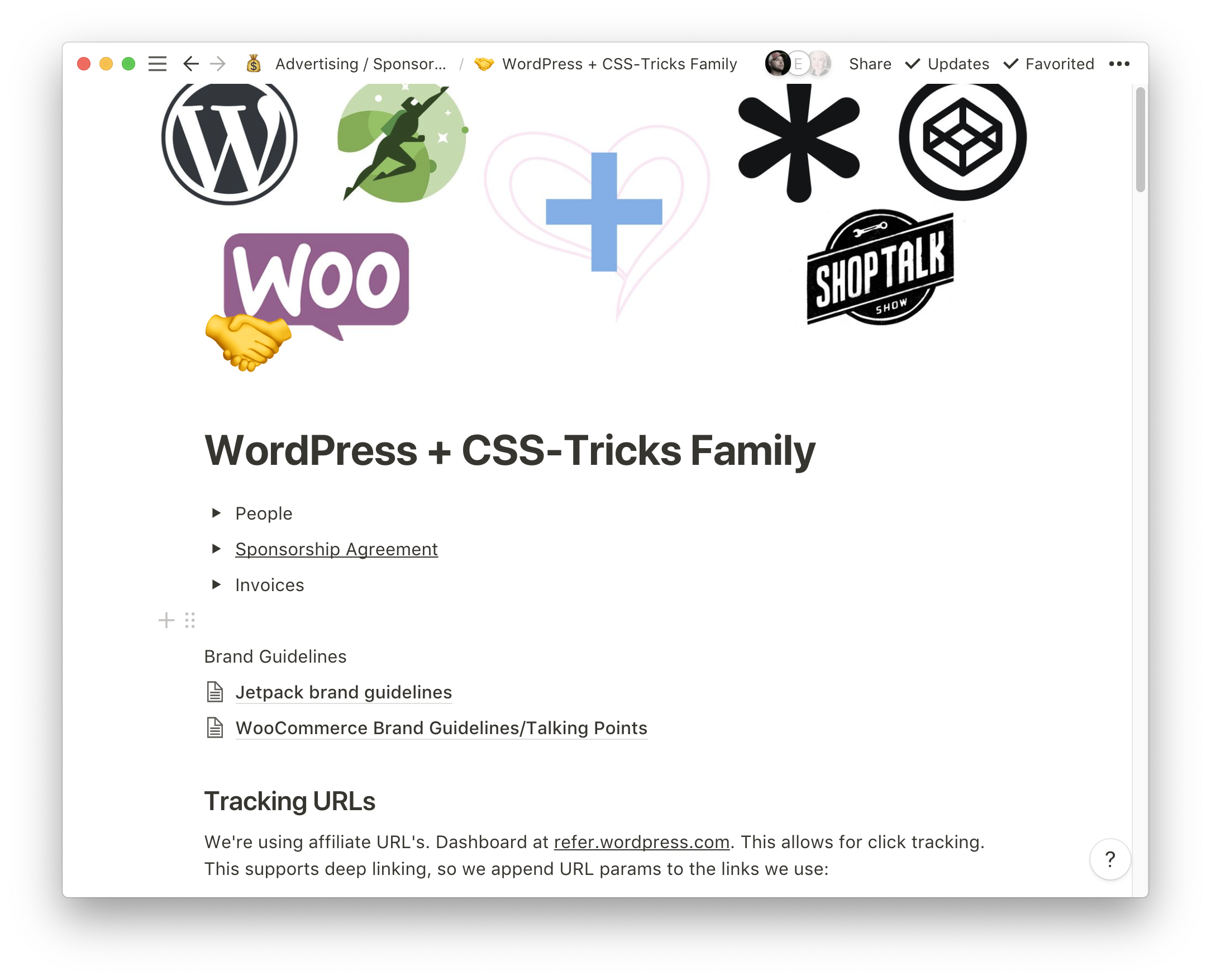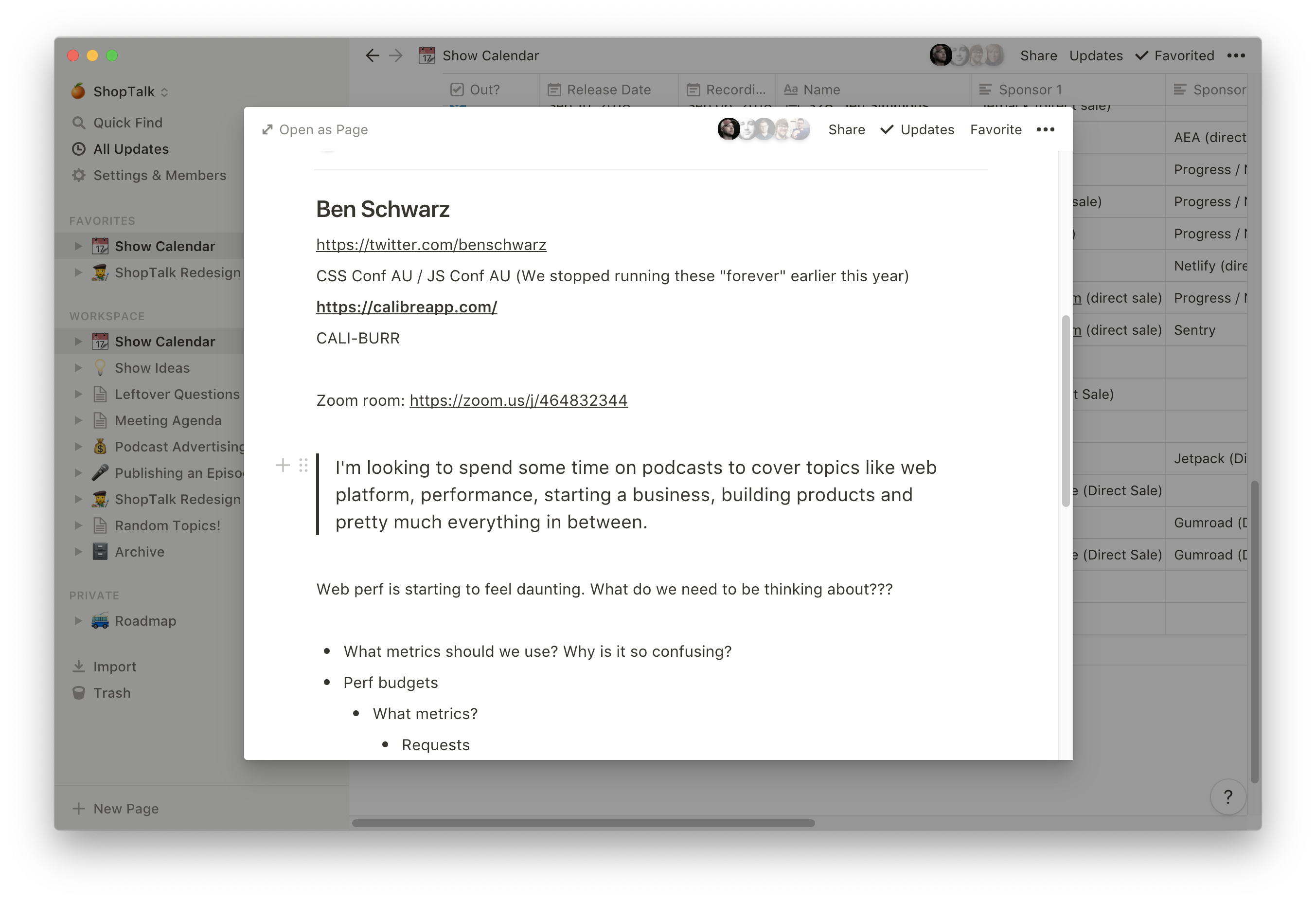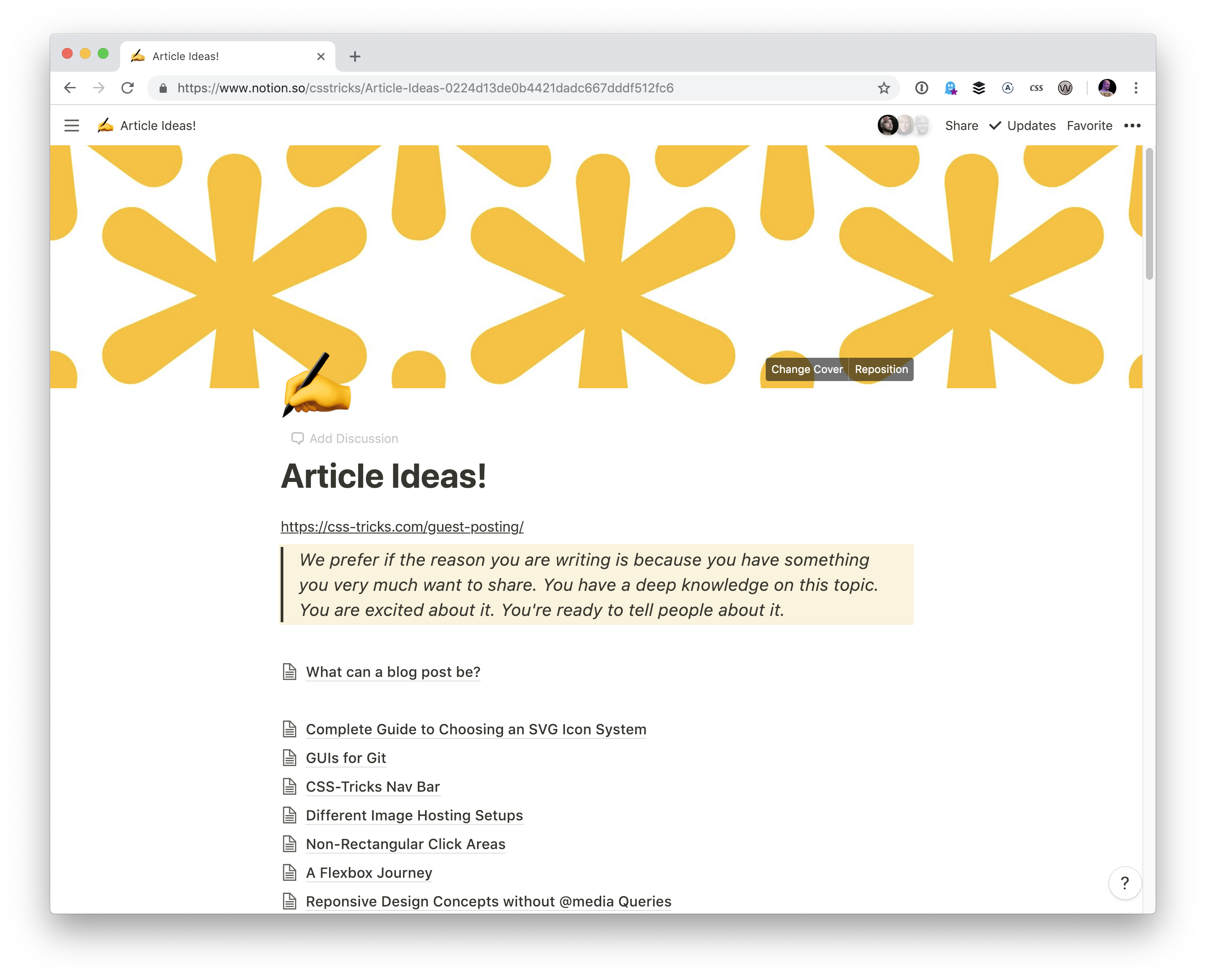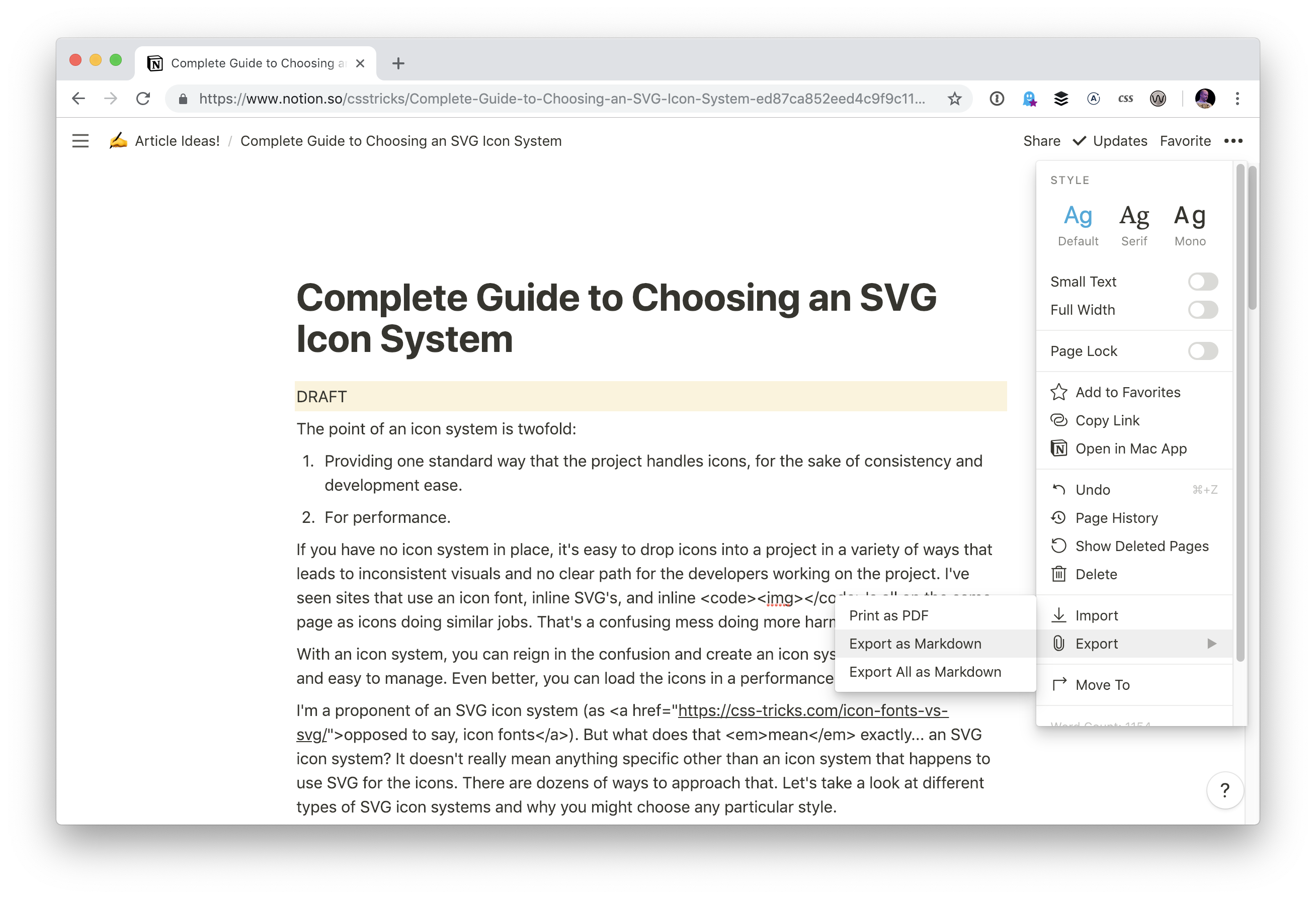The Public Beta of the Notion API dropped! Woot! Here’s their guide. I’ve been a Notion user and fan for a long time, for both personal and professional team use. They even sponsored a few videos around here a while back that are still a great representation of how I use Notion. Because Notion is so workflow-oriented, it’s a perfect app to have API integrations with, making this release feel like it was a long time coming.
This is a full-blown API, so you can do things you’d expect to be able to do, like cURL for users, the content of pages, and manipulate databases. They have detailed documentation, expected barriers like rate limits, and even a JavaScript SDK.
This changes the game on some existing services. For example, Super was always a pretty neat way to make a Notion-powered website, but it felt a little risky to me. What if Notion didn’t like that usage and cut it off somehow? Or released their own similar tool? Meh, not risky anymore. Apps like Super can rest easy knowing there is a real API for this so they don’t have to do whatever workaround they were doing before (scraping?) and this kind of usage is likely encouraged, if anything.
I also think it was super smart of Notion to include pre-built integrations with other services people are definitely going to want. For example, you can connect a form on TypeForm to a Notion database so that new entries are automatically placed there. Even better, they have Zapier and Automate integrations, so you can wire up just about any app-to-app integration to you can think of.
I was ready to get using this API right away. On ShopTalk Show we have an ask question form and we sent those submissions to Trello as a way to put them somewhere where we could reference and organize them. But we don’t really use Trello much these days; but we’ve used Notion for planning for ages. I’ve long wanted a way to pipe questions from that form right into Notion. I was all ready to write a little code to do it, but I didn’t have to thanks to the Zapier integration.
Here’s how I got that working. The ShopTalk form exists in Wufoo:

Which we embed on our WordPress site:

I set up a Zapier trigger to fire when that form is submitted:

To make sure it can go somewhere in Notion, I had to create a new Integration on the Notion side:

This next part is very important! You have to explicitly share the database with the integration, as if the integration was a user.

Once you’ve done that, you can see the Notion database on the Zapier side, and map the Wufoo form fields to the Notion database fields.

Now when the form is filled out, we get the new questions immediately over in Notion, which is where we do our show planning anyway! No more copy and pasting crap from other places!

I was very happy to get this all done literally on day one of having this API in public beta. Great job Notion!
The post Notion API appeared first on CSS-Tricks.
You can support CSS-Tricks by being an MVP Supporter.




